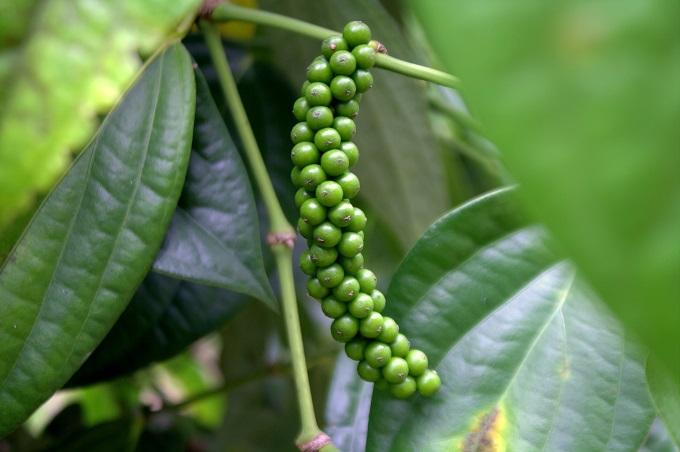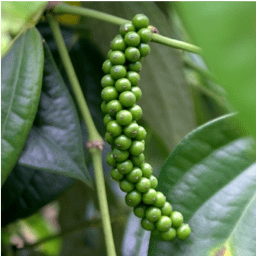The market potential of Cameroon´s Penja Pepper
Project update: Exporting Penja pepper from Cameroon to the United Kingdom and other European countries
We recently completed our study on the market potential of Cameroon´s Penja pepper. In this blog, we share some insights from this study and highlight the main opportunities and challenges of the market.
This study was assigned by the United Kingdom Trade Partnership Programme (UKTP) of the International Trade Centre (ITC). The main objective was to analyse the current and potential European and UK market for Penja Pepper.
Beyond the study, we also focused on providing practical information on market entry. This included: how to do business, promotion, trade shows, and identify potential partners.
In addition, and as part of our collaboration with UKTP and the ITC, we participated in a webinar on “Preparing Cameroon for the export of Penja peppers to the international market”. During the webinar, we offered practical advice and recommendations to identify the best opportunities and to prepare for export to the EU and the UK.
Among the best peppers of the world
Penja pepper is a type of peppercorn from the Piper nigrum plant.
It gets its name because it is cultivated in the Penja region of Cameroon. The combination of the volcanic soil of southwestern Cameroon, its microclimate, regular and sufficient rainfall, and altitude, as well as the growing and production methods, give Penja pepper its pungency, and spicy taste and aroma. According to connoisseurs, it is among the best peppers in the world thanks to its exceptional organoleptic quality. In fact, Penja pepper was the first sub-Saharan African product to obtain a Protected Geographical Indication (PGI).
Penja pepper is a promising niche product for the EU market. Currently, few Europeans know what it is. However, its exclusivity, single-origin, PGI, and unique flavor makes it very interesting for a small group of consumers in the gourmet food segment. This segment is willing to pay a premium price for this unique type of pepper.
The European market for Penja Pepper
While the EU pepper market is a mature and saturated market, Penja’s pepper imports are still very small and could grow further. Of the 350-400 tonnes of Penja pepper produced in Cameroon, only 70-80 tonnes are exported, mainly to France. The export values of other specialty peppers provide a good indication of the size of the market for specialty peppers, such as the Penja pepper. For example, Cambodia exports between 70 and 90 tons of Kampot pepper. Europe is the main market and accounts for approximately 70% of these exports. There is a big market potential for Cameroon´s Penja pepper.
Penja pepper exports could grow by being positioned as an exclusive product. Many EU consumers are looking for exclusive ingredients that give them a new taste experience. Moreover, Chefs in up-market restaurants need to distinguish their recipes from home cooks to keep the interest of their customers. These consumers are willing to pay a premium price for Penja pepper.
The UK market
The UK is an interesting entry market for this product. Many players in the EU ingredients trade scene regard the UK as the most innovative market where trends start. In the UK, new exclusive ingredients are adopted first.
From the UK, trends often spread to other Northwest EU countries, such as Germany and Scandinavian countries (Denmark, Sweden, Norway, Finland). Southern and Eastern Europe often follow after that. Factors explaining the high level of innovation in the UK include economic factors and cultural factors. The high purchasing power in the UK allows many people to spend more money on food and dining than in many other countries. In addition, many consumers are open to trying new foreign products from far away countries. Especially in many South European countries, consumers are much more conservative when it concerns their food consumption.
This makes the UK an interesting entry market for this product.
The value of sustainable sourcing
Sustainable sourcing is key in Europe. Consumers are becoming more aware of the impact of their purchases and expect suppliers to take Corporate Social Responsibility (CSR) seriously. One of the major sustainability concerns is that less than 10% of Penja pepper farmers is said to use protective equipment. This exposes them to potentially harmful agrochemicals.
Addressing sustainability issues becomes particularly important for companies aiming to brand their Penja pepper. Brands can gain trust from customers by showing their Corporate Social Responsibility. This applies to leading spices brands, but also to smaller brands in the gourmet food segment which sometimes use organic certificates of their suppliers to substantiate their claims as responsible brands.
Single-origin, a key attribute for the EU market
Products with single-origin are increasingly gaining market interest, as consumers are more interested in knowing where their products come from. Single-origin products appeal to consumers as they are associated with high quality and uniqueness. This means that the provenance story behind a product is becoming a key attribute for the EU market.
In the niche market for high-quality peppers, retailers also use origin to promote a product. Retailers connect the pepper’s origin with the agroclimatic characteristics of the producing region to promote the uniqueness of the product. Within the single-origin market, traceability is very important to ensure the provenance of a product. In general, traceability is gaining attention from EU buyers who want more control over the supply chain. In order to gain more control over the supply chain, buyers are more willing to source directly from producers. The PGI label for Penja pepper provides farmers with an important advantage, as this label safeguards the origin of the product.
Conclusion
Penja pepper is a promising niche product for the European market. However, few Europeans know what Penja pepper is and suppliers will have to make a considerable promotional effort to attract buyers. At ProFound, we certainly see the export potential of Cameroon´s Penja Pepper to Europe and we look forward to accompanying many entrepreneurs in this process.
Want to know more about Penja Pepper and the challenges to export it? Don’t hesitate to get in touch with Kasper Kerver from ProFound at kkerver@thisisprofound.com.




